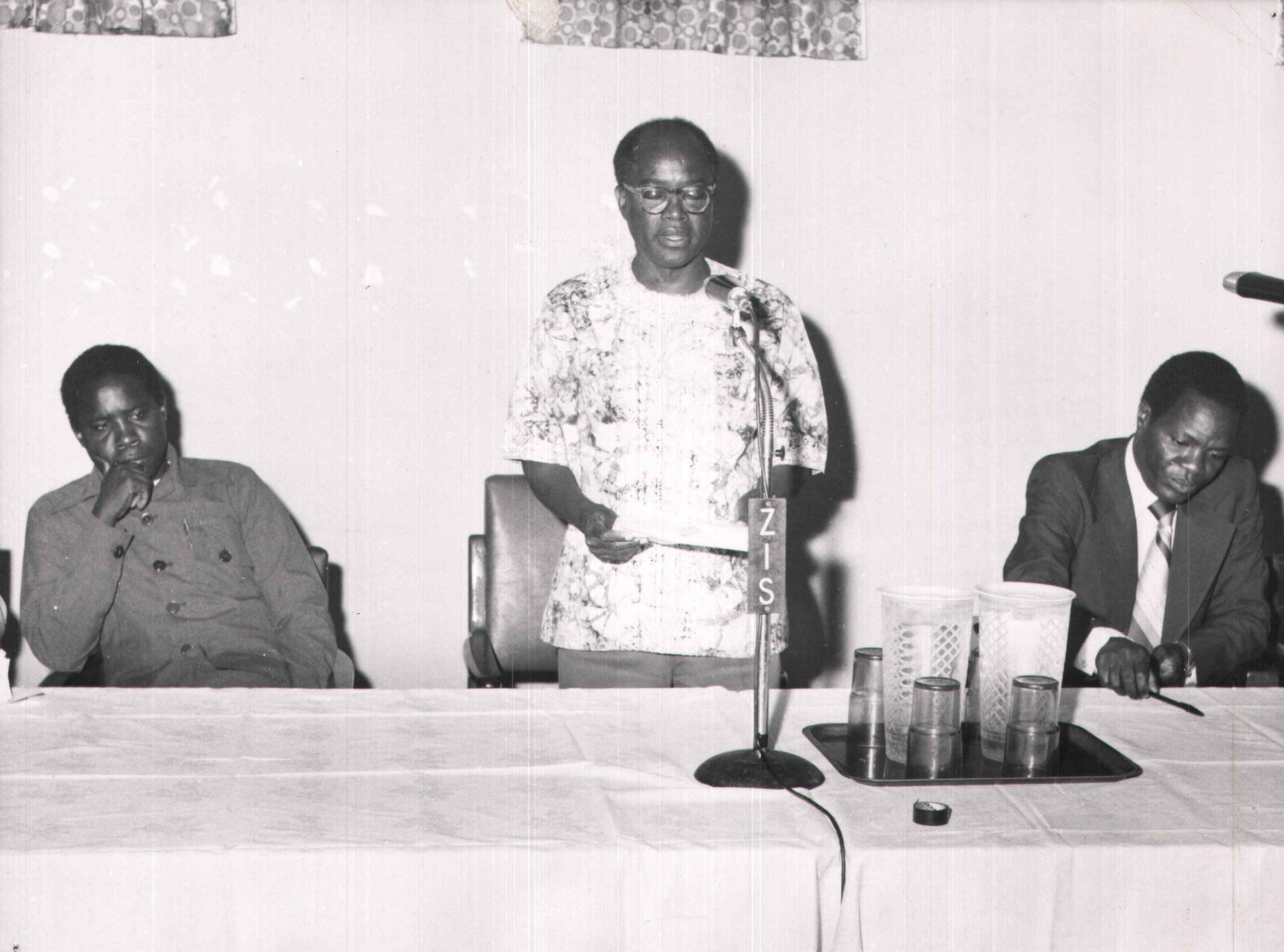
Black Cantabs Project aims to highlight role of black students at the University.
I became curious about other black scholars, both male and female, who had been here before me, but are not often talked about and who were non-existent in the portraits of the university among women, especially women of colour.
Njoki Wamai
A project which aims to celebrate the first black students at the University of Cambridge launches this month.
The Black Cantabs Project is the brainchild of Gates Cambridge Scholar Njoki Wamai with Nnenda China from Downing College and alumna Siana Bangura from Peterhouse. Alumna Eva Namusoke from Cauis College has also joined the founding team as the project historian.
The team is holding a launch event on 30th October from 4-pm at Queens' College Bowett Room, to publicise the project and connect with those who wish to get involved in the project by researching on the lives of the early black cantabs in their colleges.
The Project came out of research done by Njoki [2012], who is doing a PhD in Politics and Godfrey Sang, a visiting Kenyan scholar who was in Cambridge for 6months researching on the life of Jean Marie Seroney, a Kenyan politician and human rights activist who had visited his Makerere mates at Cambridge in the1950s. Njoki says: "Godfrey Sang unearthed interesting stories about East Africans Seroney met in Cambridge and I got interested in finding out about the earliest African scholars at Queens' College. This research on Black alumni at Queens' College laid the foundations for the project early this year. It will now be extended university-wide once we get more volunteers for the different colleges. The majority of the individuals researched so far have gone on to play prominent roles in a number of fields including the sciences, law and politics, most commonly in Africa."
Some of the prominent Queens alumni include:
– Professor James Ezeilo, who with Chike Obi and Adegoke Olubummo, was one of a trio of black mathematicians who pioneered modern mathematics research in Nigeria. He is sometimes called the "father of mathematics" in Nigeria. He started his studies at Cambridge in 1953, becoming only the second Nigerian at Queens' College, and was Vice-Chancellor of both the University of Nigeria, Nsukka, and Bayero University, Kano, as well as Chairman of the Committee of Vice-Chancellors. He was also the founding Director of the National Mathematical Centre, in Abuja.
– The late Professor Thomas Odhiambo, was the first Kenyan African to matriculate at Queens' and later became the founder of the renowned International Centre for Insects Physiology(ICIPE) which has helped farmers in protecting their crops through biological pest control methods. He also trained leading entomologists on the continent of Africa.
Due to Njoki's research he is now featured in the prominent alumni page of Queens' College. The project aims include the inclusion of black Cantabs among Cambridge alumni on Wikipedia and on Cambridge College prominent alumni lists for those who are famous, a few portraits of pioneering black alumni on College walls and the reinsertion of David Louis Clemetson, a black student soldier from Jamaica, whose name was never inscribed on the wall in Trinity College despite his participation in the 1914 war in which he died.
Njoki says: "My interest in researching black lives at Cambridge was also reignited after reading an article in The Guardian by Dr Sarah Meers from the English Faculty about the pioneering first black scholar at Queens', the US student Alexander Crummel who matriculated in 1847. He later become a priest, professor and African nationalist.
"I felt inspired by his life given the challenges he underwent then at Cambridge. I became curious about other black scholars, both male and female, who had been here before me, but are not often talked about and who were non-existent in the portraits of the university among women, especially women of colour. I found leading scientists, mathematicians and political leaders who were not featured in the prominent alumni page of my college and I wondered how black students like me would aspire to greatness if other students like them were missing in the prominent alumni pages."
She adds: "I decided to do something, research into them and provide them to my college, thankfully the president Lord Eatwell was interested in this idea and the college alumni and development department provided me with all the information I needed."
She hopes that her success in getting recognition for Professor Odhiambo is just the start.
*Picture: Minister of Education Professor Lameck Goma addressing the seminar on training for self-employment of School leavers at the UNZA Ridgeway Campus in Lusaka. Credit: www.saipar.org.












